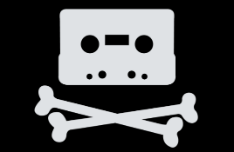 ISPs in the United States service millions of subscribers who use the internet as they see fit. At least in principle, ISPs are not responsible for subscribers’ behavior, but circumstances can dictate otherwise.
ISPs in the United States service millions of subscribers who use the internet as they see fit. At least in principle, ISPs are not responsible for subscribers’ behavior, but circumstances can dictate otherwise.
Copyright law states that ISPs must terminate the accounts of subscribers repeatedly flagged as copyright infringers. These customers are typically BitTorrent users, so when their ISP receives multiple complaints of unlawful file-sharing, the ISP is required to terminate their accounts “in appropriate circumstances.”
Several lawsuits, filed by music and movie companies over the past few years, claimed that ISPs failed to terminate repeat infringers. An early case saw record company BMG take on Cox Communications, with the former eventually walking away with a “substantial” settlement.
A new lawsuit filed this week by BMG and several industry partners lists several thousand songs and alleges millions of infringements. Potential damages could exceed a billion dollars.
BMG Takes on ISP Optimum
Filed in the United States Court for the Eastern District of Texas, the complaint features BMG Rights Management, UMG Recordings, Capitol Records, Concord Music Group, and Concord Bicycle Assets as plaintiffs.
The defendants, Altice USA and connected company CSC Holdings, are described as the operators of one of the largest ISPs in the United States. Available in at least 21 states, these high-speed connections are sold under ‘Optimum’ branding and according to the plaintiffs, used by thousands of persistent pirates.
After a brief BitTorrent explainer, including its ability to “exponentially increase the availability of unauthorized copies of pirated works to millions of people,” the record companies allege that Altice knowingly contributed to (and profited from) infringements committed by thousands of subscribers.
Failure to Terminate & Infringement Liability
The lawsuit itself follows a very familiar format. The record companies claim to have detected millions of infringements carried out by Altice subscribers and reported them to the ISP.
The plaintiffs claim that Altice was required to take action, including terminating accounts, but failed to do so.
“Those notices advised Altice of its subscribers’ blatant and systematic use of Altice’s service to illegally distribute Plaintiffs’ copyrighted works using BitTorrent,” the complaint notes.
“Rather than work with Plaintiffs or take other meaningful or effective steps to curb this massive infringement, Altice chose to permit infringement to run rampant, prioritizing its own profits over the Plaintiffs’ rights.”
“Direct Interest” in Infringing Activity
The music companies state that liability for infringement carried out by others is clearly laid out under copyright law.
When a party knowingly and materially assists someone engaging in copyright infringement, it is liable for that infringement. When a party holds a direct financial interest in the infringement but fails to intervene, despite having the ability to do so, liability is also incurred.
The complaint alleges that Altice incurred liability when it turned a blind eye to subscribers’ infringements and continued to take their money. The infringement notices sent by the record companies meant that the ISP knew about ongoing infringement, had the ability to stop it, but failed to do so.
Egregious Repeat Infringers in Texas
The plaintiffs state that a number of the most egregious repeat infringers reside
in Texas, including those who repeatedly infringed one or more of their copyrighted works.
Subscribers listed under two specific IP addresses allegedly committed 1,000 acts of infringement each, but despite receiving notifications, the ISP ‘permitted’ the infringements to continue “over and over again.”
In keeping with similar ‘repeat infringer’ lawsuits, the record companies claim that Altice profited from customers who, due to their file-sharing habits, were willing to pay more for faster internet connections. Some of these infringers, the complaint adds, continued to infringe for months, even years at a time.
Overall, Altice reportedly received over a million infringement notices relating to 20,000 of its subscribers. “Many hundreds” infringed the plaintiffs’ rights up to tens of thousands of times, the complaint adds.
Claims For Relief
Describing Altice’s contributory infringement as “willful, intentional, and purposeful,” the plaintiffs claim damages and profits for each infringement under 17 U.S.C. § 504(b).
Alternatively, the record companies claim statutory damages of to up $150,000 per infringed work under 17 U.S.C.§ 504(c).
A second count of vicarious copyright infringement, where infringement could’ve been controlled and where there was direct financial interest, the plaintiffs again claim damages and profits for each infringement under 17 U.S.C. § 504(b) or statutory damages of to up $150,000 per infringed work under 17 U.S.C.§ 504(c).
The precise number of allegedly infringed works is absent from the complaint but Exhibit A, a 175-page attachment featuring songs by David Bowie, Justin Beiber, Katy Perry, Keith Urban, Lady Gaga and many more, carries roughly 45 songs per page. Perhaps as many as 7,800, give or take.
In addition to roughly a billion dollars in damages, the record companies also demand an injunction to prevent ongoing infringement. An undisclosed settlement behind the scenes might also be acceptable, in line with similar lawsuits disposed of recently.
The complaint can be found here (pdf)





